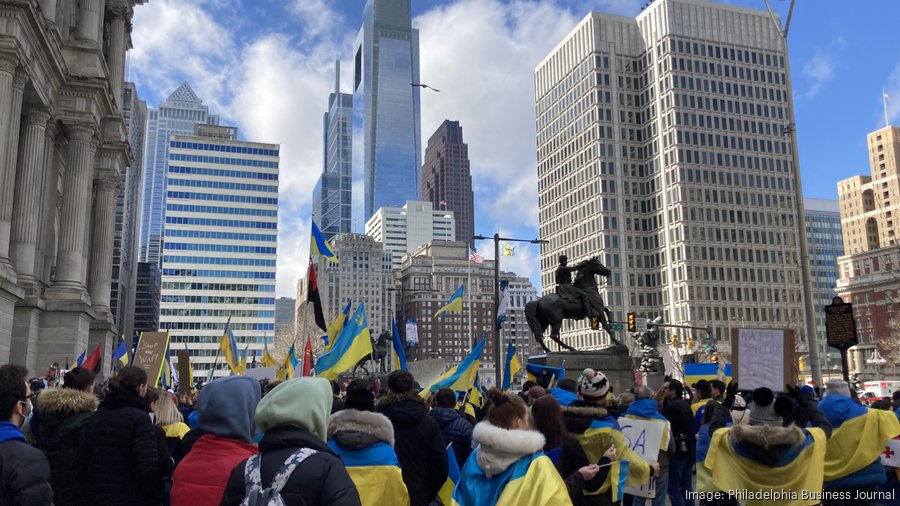U.S. colleges and universities are weighing whether to shed Russian investments and partnerships following the country’s illegal invasion of Ukraine last week, higher-ed experts and attorneys said. Some schools, including the University of Colorado and Massachusetts Institute of Technology, are already taking action.
“Part of the effect of disenfranchising assets related to Russia is portraying the public message that we are in support of Ukraine,” said Michael Cooney, a partner with law firm Nixon Peabody and a member of the firm’s higher-education team. “I think we are going to see public announcements from more and more institutions.”
The Business Journals reached out to 10 of the wealthiest universities in the nation to inquire about plans to divest Russian assets. One declined to comment (Williams College) and eight did not respond to the request by deadline. Yale University spokeswoman Karen Peart told The Business Journals "that Russia has not been an area of interest for the investments office."
Larger endowments are more likely to hold investments in developing countries as part of a diverse portfolio, said Karyl Leggio, professor of finance at Loyola University Maryland. She said it’s unlikely that any one school would have more than 1% of its assets under management invested in any one country, though that could still equate to millions of dollars for multi-billion-dollar endowments. Russian stock values have plummeted since the start of the invasion, with some companies falling as much as 99% as the stock market remains closed to trading.
“If you have a big position in Russia, this could be really costly,” Leggio said. “The ethics are winning out in this case — support for a country that is standing up for their freedom and their rights. There is some momentum in getting rid of the Russian assets.”
Morgan, Lewis & Bockius LLP partner Carl Valenstein said that universities should pay particular attention to investment exposure to securities in specially designated nationals, which are a group of companies owned or controlled by countries targeted with sanctions by the U.S. Treasury, according to Dow Jones.
“There is a wind-down period permitted to dispose of their investments, but if they choose to hold they may need to block the investment,” Valenstein said. “Some universities and other investors are considering a broader divestment policy on Russia in protest that goes beyond what the sanctions strictly require.”
The University of Colorado, for its part, said Thursday that it is taking steps to divest investments in Russian companies. The university’s announcement comes after Colorado Governor Jared Polis sent letters to the state’s nine university systems and the community college system urging them to divest any endowment funds containing Russian-owned assets and to terminate any grants or research projects with Russian institutions.
Likewise, Virginia Governor Glenn Youngkin and also urged universities to divest Russian investments while Indiana Governor Eric Holcomb asked public universities to disclose Russian funding and research ties.
“Like so many others, we have watched in horror as this invasion has brought senseless violence and aggression to the region,” said CU President Todd Saliman. “We are looking for ways to show our support for the people of Ukraine and believe that cutting our investments is the right thing to do.”
The university’s foundation said less than .1% of its $2.6 billion long-term investment pool sits in publicly traded Russian companies. Fund managers are in the process of selling these securities. The university is also invested in mutual funds that have equity holdings in Russia, less than 0.25% of its assets under management or about $3.5 million. The university has requested that the mutual funds exit these holdings as early as allowable.
“Our hope is that together with other universities and entities across the world, we can raise our voices and help end this conflict,” said Regent Sue Sharkey, vice chair of the CU board.
Additionally, the Arizona Board of Regents on March 7 told the presidents of Arizona’s public universities (including Arizona State University, the University of Arizona and Northern Arizona University) to exit any investments in Russian assets “as quickly as possible.” The board’s executive director also plans to exclude Russian assets from the board’s retirement plan. The schools' presidents have halted any academic partnerships with Russian institutions.
“With today’s action, the board repudiates Putin’s aggression and ensures Arizona’s public university enterprise divests of any Russian assets,” said Arizona Board of Regents Chair Lyndel Manson.
MIT also recently severed ties with the Skolkovo Institute of Science and Technology in Russia. President L. Rafael Reif, in consultation with senior leadership, said the decision "is a rejection of the actions of the Russian government in Ukraine." The University of Colorado said that its faculty are not currently doing any research funded by Russian entities and are not sending funds to Russian entities as part of any research project.
In addition, Middlebury College in Vermont suspended its Russian study abroad program following the invasion.





